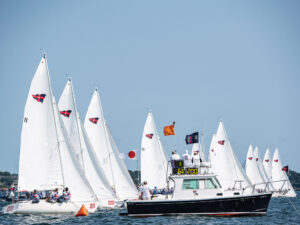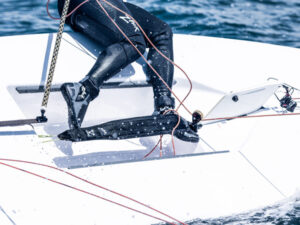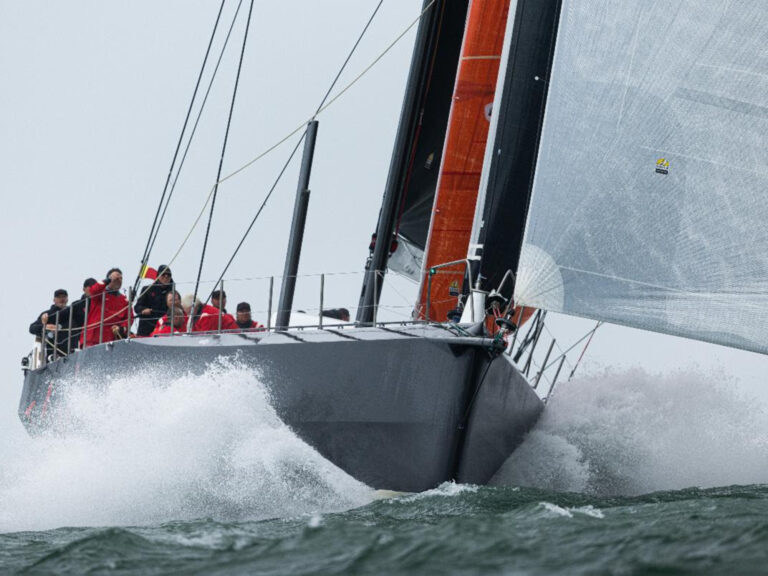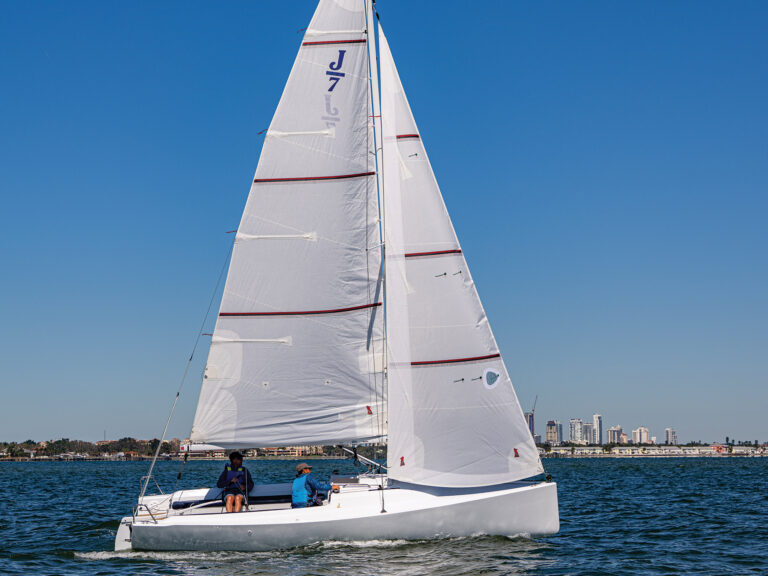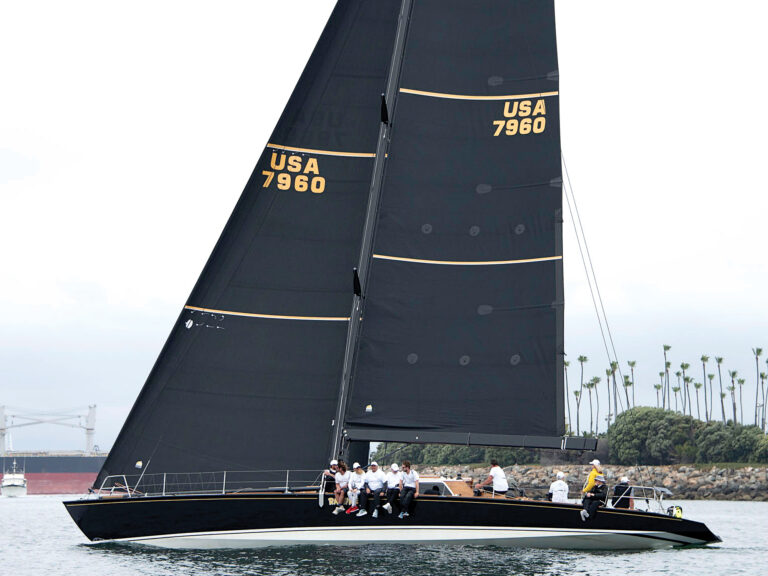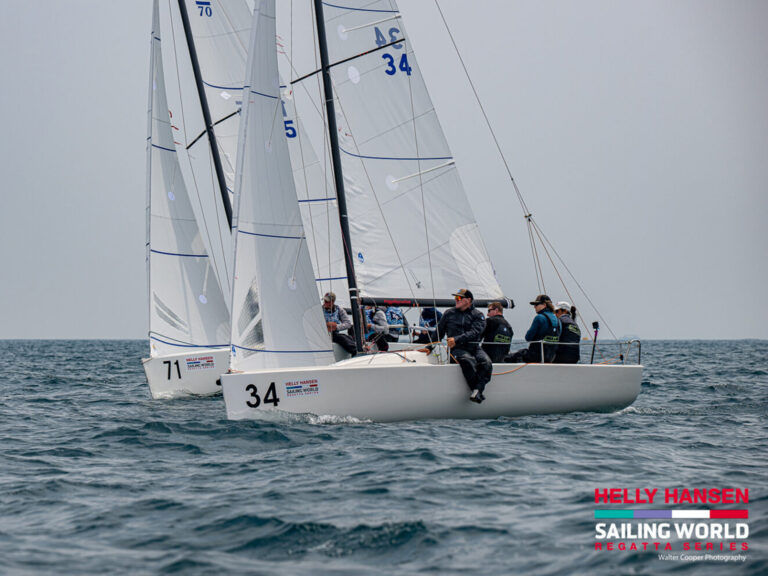
TFDdeviceSt
Owning a piece of front-row real estate is the ultimate goal in starting, especially in big-fleet starts. But when there’s a long line and a sea of white sails and hulls even the best race committees will miscall OCS boats-some will get nailed while others get away. Worse, if too many boats push the line, the race committee will recall everyone and try again, essentially penalizing those who started properly. Soon, however, says Henri Van der Aat, of Denmark, who has presided over race committees at the sport’s highest levels, the way in which we start, specifically the way in which race committees deal with OCS starters, will change dramatically, and for the better.Van der Aat envisions the starting line’s two ends (as well as a mid-line boat if in use) carrying GPS-based transponder chips, allowing their positions to be accurately marked. Each raceboat will carry a unit, mounted at the same exact location, whether at the bow or at the mast, continuously reporting its position. For ultimate accuracy, the tracking system will also be tied into the timing sequence and starting signals, which themselves are prone to human errors and delays as well. “The starting signal will be spot on,” says Van der Aat, “the line will be spot on, and therefore you will be spot on.”How so? Tomorrow’s solution is available today in a 100-gram tracking transponder no bigger than a cell phone. One such unit, developed by the Danish company Sport-Track, was used in the 2006 Tour de France cycling race. In two of the Tour’s stages, these lightweight GPS transponders fed rider position and performance data to a tracking portal using GPSR, a high-speed cellular transmission, allowing real-time online race viewing. Using EGNOS, the European equivalent of WAAS-based GPS, which uses a network of ground stations to correct GPS signals, the transponders were said to be precise to less than a meter.
“The technology is absolutely there,” says Van der Aat, ISAF’s Race Management Subcommittee chairman, and a staunch proponent of using electronic systems for starting and competitor tracking. “There’s so much development coming from military applications; they’re now capable of monitoring the movement and placement of individual soldiers and equipment in the field.”Within two years, he says, the tracking system now in use will be precise to within a centimeter. “Whoever is over the line will be immediately identified electronically rather than by the human eye.”The next step, of course, is to have the system immediately report to the competitor that they’re over the line. This, says Van der Aat, could either be a light or audio signal integral to the device. If you get the green light, for example, you’re your clear. If you get a red light, head for an end.There are other important benefits of such a refined fleet and competitor tracking system. Two U.S. companies, Kattack, and iBoattrack, have been using basic GPS technology to track and present data for offshore and buoy races, which allows racers and the media to see how the race played out. There are training applications as well.According to Van Aat, transponders will eventually report more than speed and position. “I can put a little camera or audio on the boat, and they, too, will feed into the system,” he says. “This will allow sailing to be followed much more closely by the media-it will be much more transparent.”The technology race, he adds, is being played out by as many as 10 companies, each striving for the ultimate precision. Today the accuracy is good enough to follow a race, but not precise enough for starting.”There’s a need for such a system,” says Van Aat. “The human eye tracking the starting line is never perfect. It’s something we need to have, and when there’s a need to have something, it will be developed. Leading up to 2012 Olympic Games in London we will have a fully electronic starting system.”


